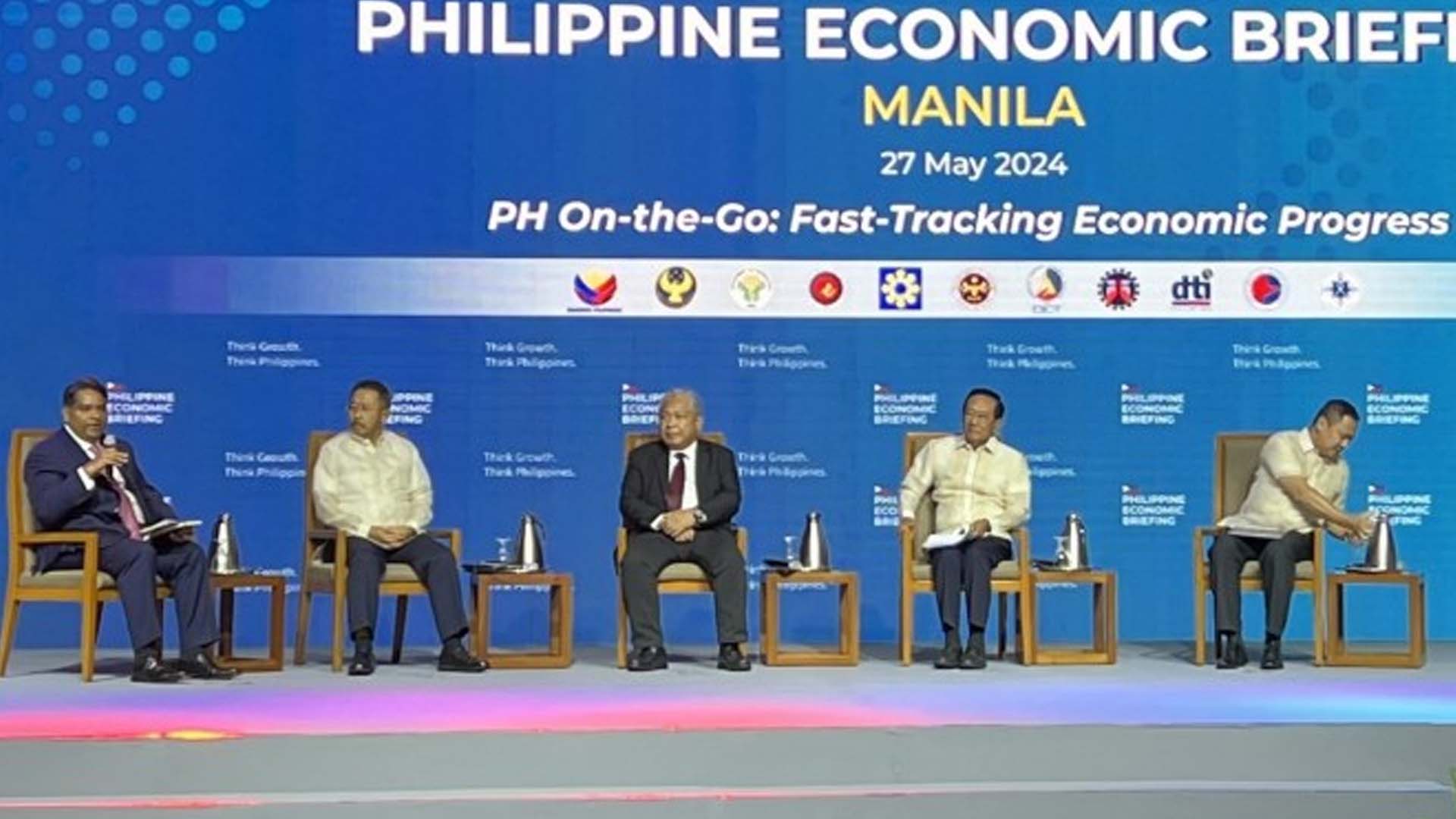The Department of Public Works and Highways (DPWH) has urged the private sector to invest in government projects.
“I firmly believe to be able to implement efficiently the projects of the government, we also encourage the participation of the private sector,” DPWH Secretary Manuel Bonoan said at the Philippine Economic Briefing held at the Philippine International Convention Center (PICC) in Pasay City on Monday.
Bonoan shared several projects of the government under the high-standard highway development master plan, which involve the construction of highways and expressways in three islands of the country.
“This will involve the implementation of about 1,800 km. of high-standard highways and expressways. There’s a lot of room for private sector to avail the implementation of these programs,” he said.
“The expressway system or network in the Philippines right now is just about over 500 km., mostly in Luzon for now, around Metro Manila. Now, under this master plan, the plan to implement another more than 350 km. expressways not only in Luzon but in other parts of the country,” he added.
Bonoan said these projects aim to enhance mobility and address traffic congestion in many areas.
“This is where the private sector will come in and help us in the implementation of these programs either through participation on what you call solicited proposals projects that they have identified or the unsolicited proposals, the private sector can commit,” he said.
Aside from investments, the DPWH chief said the private sector can also provide technical services, consultancy services and other forms of assistance to the implementation of the government’s infrastructure projects.
On the other hand, the Department of Information and Communications Technology (DICT) said the potential of the Philippines for hyperscalers is big.
Hyperscalers are large-scale data centers that offer massive computing resources, typically in the form of an elastic cloud platform.
DICT Undersecretary Paul Joseph Marasigan said the country should start looking at this sector and take advantage of the situation.
“Let me state the facts, first, Singapore has already put a cap on the number of hyperscalers that they can deal with in their country, which put it at the back burner of new hyperscalers. Now, let’s talk about the other targets, Taiwan and Hong Kong as hyperscaler centers due to geo-political issues. Most western countries cannot connect directly to them,” he said.
“So, here is the potential for the Philippines –the country has 11 submarine cables, we are the number one destination for BPOs (business process outsourcing). There are 11 submarine cables currently, but there will be 14 in the next two to three years,” he added.
Marasigan, meanwhile, underscored the need to utilize the country’s renewable energy potential for this industry.
“The most important factor for data centers… is power most specifically renewable energy… we need to factor these in build more of the energy requirements because according to the study of DICT (Department of Information and Communications Technology), for the next three years, the data center for the Philippines would be approximately 400 to 600 megawatts and we need to produce this green energy for that many data centers,” he said. (PNA)






